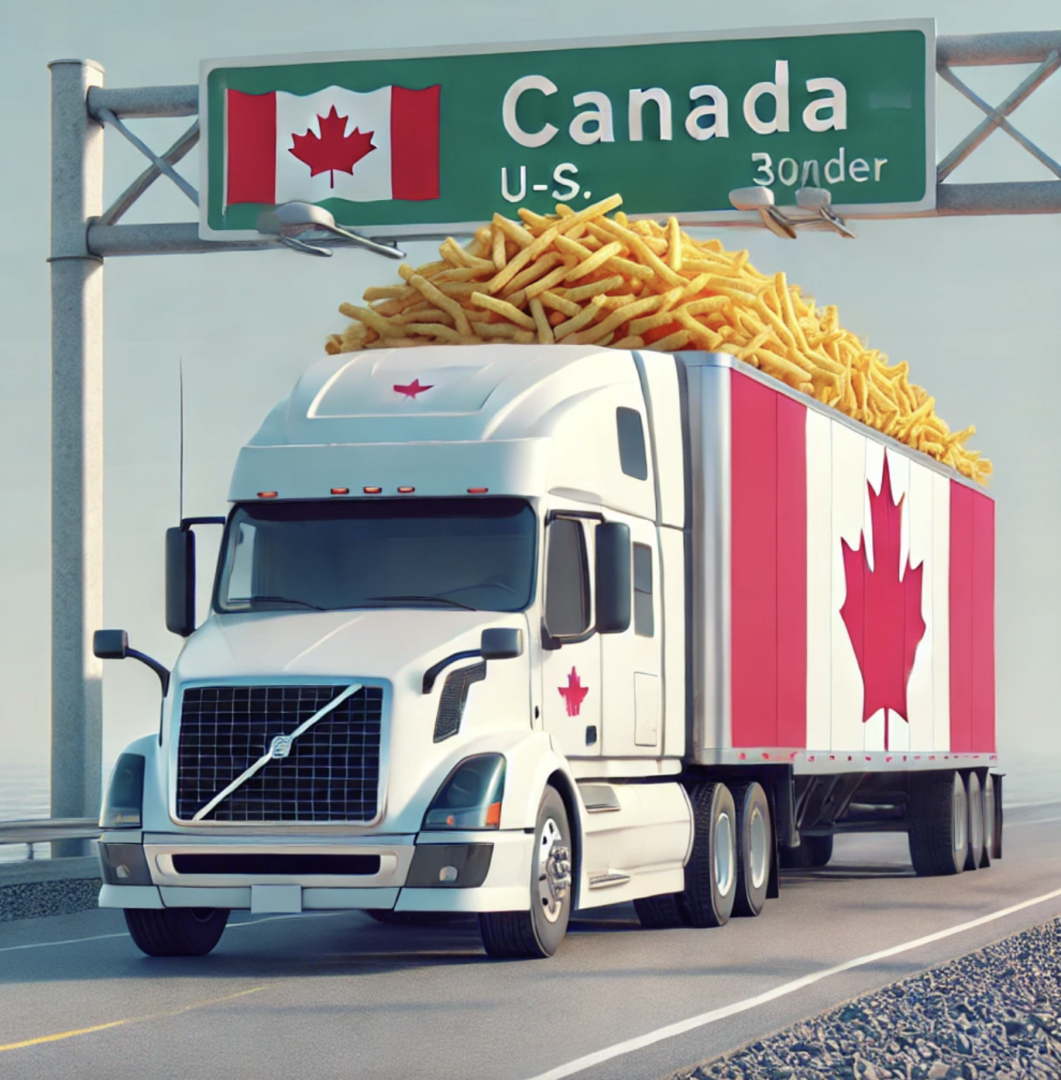Search Posts
Recent Posts
- Rhode Island Weather for June 9, 2025 – Jack Donnelly June 9, 2025
- Our Networking Pick of the Week: Uncle Jay’s Traveling Breakfast Network June 9, 2025
- When favorable treatment looks like discrimination – Mary T. O’Sullivan June 9, 2025
- To Do in RI: Literary Walking Tour, Discussion with writers in residence at Linden Place June 9, 2025
- New report recognizes music’s therapeutic and financial value in Alzheimer’s care – Herb Weiss June 9, 2025
Categories
Subscribe!
Thanks for subscribing! Please check your email for further instructions.

3 out of every 4 French Fry comes from Canada. U.S. files class action for price fixing.
More often these days we want to know where our food is coming from, and just what is in our food. As Canada and imports have recently come to the forefront, we learned the answer to where do our French Fries come fry? The answer? Overwhelmingly, especially frozen – Canada.
McCain Foods Ltd and Cavendish Farms are Canadian companies, where most frozen potato products originate – products used in frozen packages for home use, as well as large fast-food processing in the United States.
In November, the United States filed class action suits in U.S. federal court in Illinois, against these two companies, with claims that they had formed a “potato cartel”, conspiring with other large processors in an effort to raise the price of frozen potatoes in the United States.
The other companies named in the class-action lawsuits for participating, according to The Canadian Press, are U.S. companies Lamb Weston Inc. and J.R. Simplot Co., as well as the National Potato Promotion Board (Potatoes USA). Potatoes USA’s mission statement is: “Potatoes USA is the only national marketing and research organization focused solely on strengthening the demand for American’s Favorite Vegetable”.
The complaint alleges the major processing companies have a “direct line of communication to each other” and regularly share pricing data and other sensitive information. “The potato cartel moves prices skyward in lockstep — harming all purchasers of potatoes in the process,” the court filing states. In the retail case, “realizing unprecedented margins”.
McCain Foods denies any wrongdoing. “McCain Foods strongly disputes any allegation that the company violated antitrust laws, or any other laws, with respect to the sale of frozen potato products,” said Charlie Angelakos, vice-president for global external affairs and sustainability with McCain Foods, and “McCain Foods intends to vigorously defend the recently filed lawsuits so that it can focus on what we do best: delivering high quality, affordable food to customers nationwide.”
According to the court filings, the four potato processors named in the lawsuits together control 97 per cent of the frozen potato market in the U.S.

Our food chain: As MAHA and other efforts to look at our food supply, and what items are in our foods, it is interesting to note that typically, frozen fries made in Canada contain 3-5 ingredients—potatoes, vegetable oil, salt, and sometimes preservatives or anti-foaming agents. Major Canadian producers, like McCain Foods, focus on minimal ingredients while maintaining crispiness and shelf life. Similar to Canadian fries, U.S. produced frozen french fries depending on the brand and processing methods, may have more additives, such as stabilizers, dextrose (for consistent color), and additional preservatives.
Also, according to The Canadian Press: Based in New Brunswick, McCain Foods has 51 frozen food processing plants around the globe, and according to its website, makes one in every four French fries consumed worldwide. McCain Foods Canada sources its potatoes from farms in Manitoba, Alberta and New Brunswick. Cavendish Farms is a subsidiary of the New Brunswick-based J.D. Irving Group of Companies. The company says it is the fourth largest processor of frozen potato products in North America. Cavendish Farms sources potatoes from farmers in Prince Edward Island and Alberta and operates potato processing plants in both provinces.
Potatoes USA stated in October, “…the U.S. potato market is strong. It’s so strong, in fact, that international companies are in the early process of building new processing capacity in the United States. This includes companies from Belgium, France, and India that we know of today. The increased processing capacity should rebalance imports over time, which have more than doubled over the past decade while U.S. consumption outpaced supplies – especially for many frozen products. In the future, U.S. farmers should have more opportunities to use American-grown potatoes to help meet the demand these companies previously filled with potatoes from other parts of the world.
It is unclear if the 25% tariff the US intended to levy on Canadian products, which is now on a 30-day hold, will impact the frozen potato industry. Court proceedings have not yet engaged on the US lawsuit.
